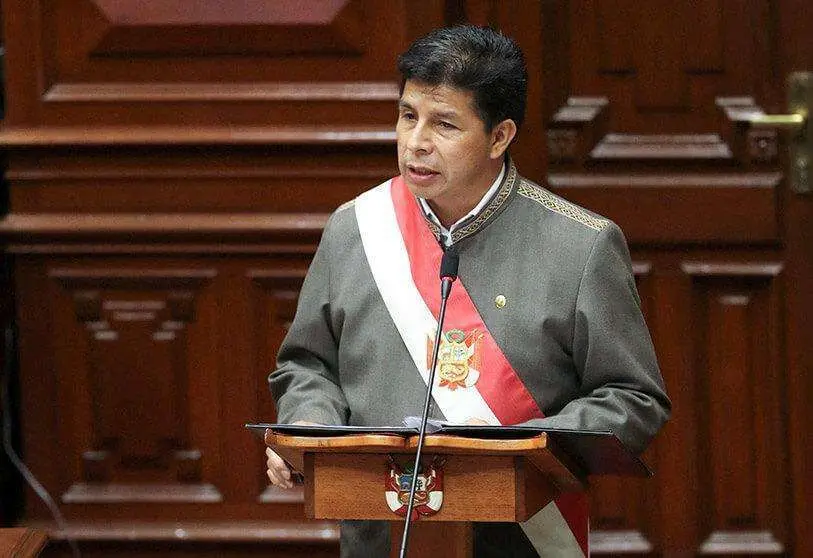Peru also failing to get back on its feet with Castillo

After his first year in power, Peru's president, former rural teacher Pedro Castillo, has dashed the hopes that the slim majority with which he won - a mere 44,000 votes - over Keiko Fujimori, had placed in a character from outside Peru's deeply flawed political class. It is true that Castillo ended up being the candidate of Perú Libre because the real leader, the neo-Maoist Vladímir Cerrón, was disqualified from holding public office for corruption.
Corruption is precisely what Castillo promised to eradicate, and now, taking stock of his first year, it turns out that not only has that promise not been fulfilled, but corruption seems to have stuck like a sticky glue to the president's circle until it has contaminated him.
A curse seems to be hanging over a country in which almost all the presidents since 1990 have been arrested, prosecuted or are on the run and under extradition orders, in addition to the suicidal Alan García when he saw that he had no escape from the evidence of having been corrupted by the Brazilian mega-property firm Odebrecht.
President Pedro Castillo could soon end up like his predecessors. He is being pursued by five judicial investigations, the most serious for allegedly heading a criminal organisation. These are very serious accusations, led by his former right-hand man as Secretary of the Presidency, Bruno Pacheco. Pacheco stepped in when the prosecution had gathered compelling evidence that he had grossly misused his office to profit from it. After thinking it over while on the run, Pacheco finally turned himself in to the Prosecutor's Office last week and, in addition to admitting the charges against him, implicated the President, whom he directly accused of having received $20,000 from each of the police colonels in exchange for promoting them to generals and sending them to border posts to "recoup their investment".
This and another cascade of corruption cases throughout Castillo's first year in office have been compiled by Alfredo Torres, the president of the opinion institute Ipsos Peru in the analysis of the latest survey conducted throughout the country's territory. According to the sample, 74% of Peruvians disapprove of the management of the president who was supposed to put an end to the permanent larceny of political officials and their collusion with the concessionaires of all types of concessions. Compared to the 3 per cent of Peruvians who judge Castillo's work positively, it is quite easy to see who the main interlocutors and beneficiaries of the bribes have been.
In this context, and in this atmosphere of chaos, it is worth noting that the governing left-wing coalition's main concern has not been to put an end to corruption, but rather to call a Constituent Assembly. In this aim they coincide with the whole of the so-called Bolivarian Axis (Cuba, Venezuela, Nicaragua and Bolivia) and also with Chile, which will soon have to judge in a referendum whether to approve the new Constitution resulting from its own Constituent Assembly. If such a proposal has not yet prospered in Peru, it is because they lack a majority in Congress, which has also rejected the more radical economic measures advocated by Vladimir Cerrón's supporters.
At the same time, parliamentary division and fragmentation is what has prevented Castillo from being removed from office under the so-called "vacancia por incapacidad moral permanente" (vacancy due to permanent moral incapacity). However, after the prosecution of Bruno Pacheco, as well as former Transport Minister Juan Silva and numerous lower-ranking collaborators, but very close to the presidential circle - he has appointed up to four ministerial cabinets this year - it seems more than likely that Castillo will be materially burned by the testimonies that all of them can give.
The most positive side of this rarefied Peruvian panorama is the one that the president of Ipsos himself describes as uncovering the pestilent faecal waters of Peruvian politics: the press, whose investigations and well-founded denunciations have laid the groundwork for the Public Prosecutor's Office to turn them into judicial investigations, and civil society, which is mobilising as never before to restore the country's good name and confidence that it can regain prosperity without having to pass inexorably through the port of “arrebatacapas”.

